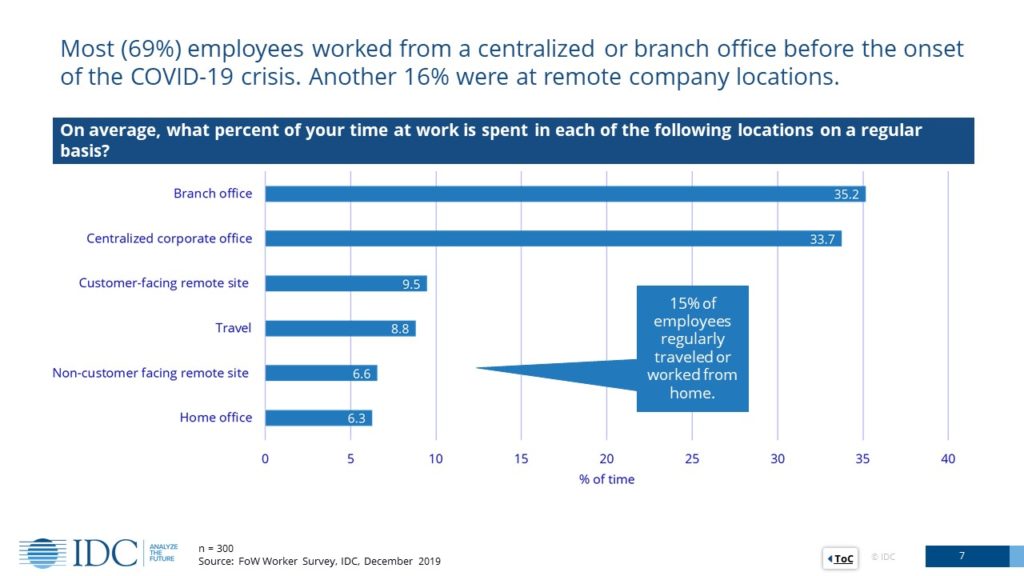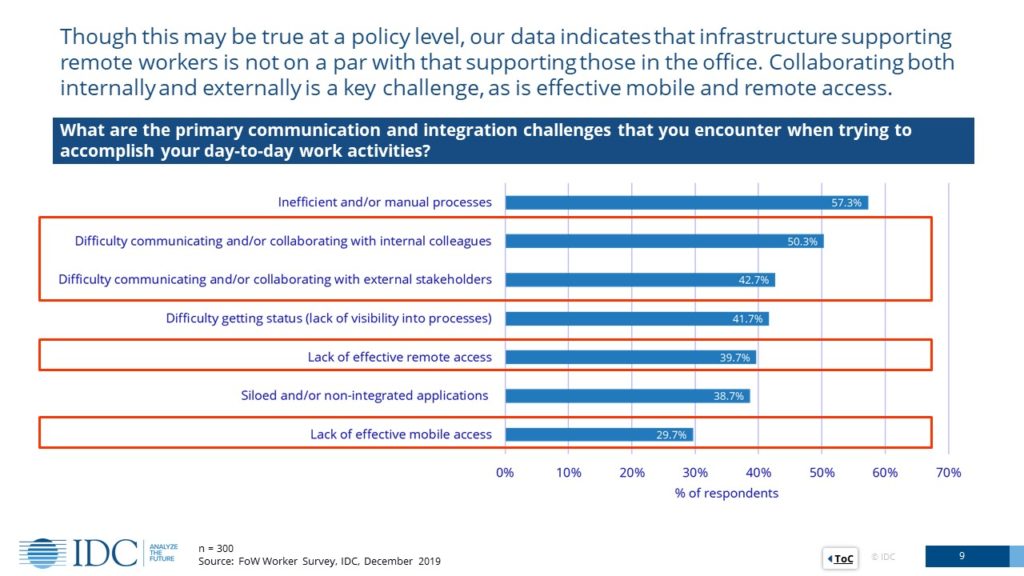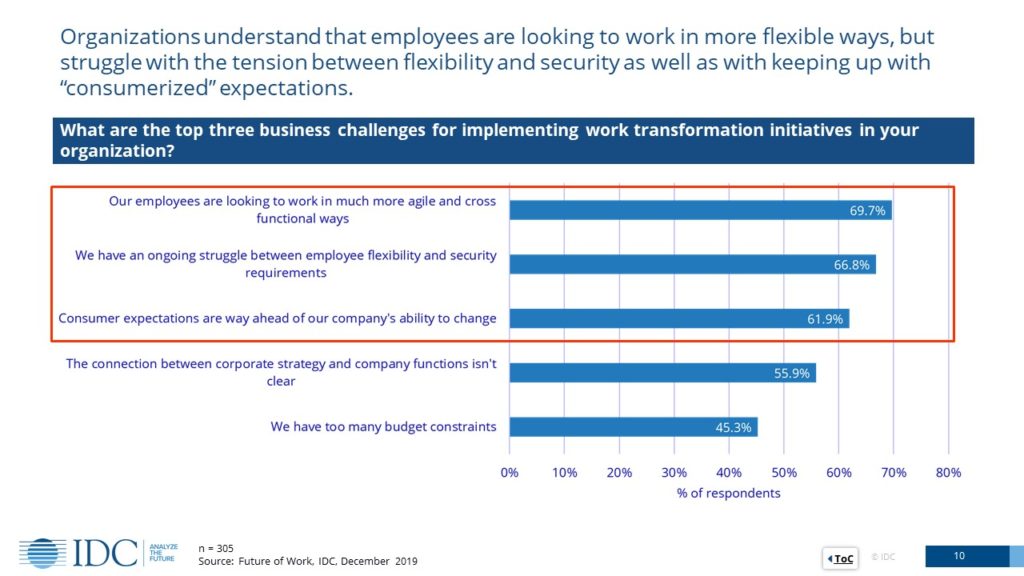Remote Work in the COVID-19 Era: Are We Ready?
For several weeks now numerous media outlets have been publishing articles related to remote work on topics from technology to etiquette to preventing feelings of isolation (virtual happy hour anyone?) But how ready are we for this “new normal”?
The outbreak of the Coronavirus has caused many organizations to reexamine their remote work policies, processes and supporting technology. Interestingly, many organizations believed that they were already prepared support remote work. In recent (pre-COVID-19) IDC research, 62% of U.S. workers indicated that their organization offers some flexibility regarding remote work, while 58% said that they enjoy full flexibility in regard to location and time – and 56% of their senior decision makers agree.
Remote Work: The Reality
That said, historically, very few workers routinely took advantage of this flexibility and worked remotely. Most (69%) employees worked from a centralized or branch office before the onset of the COVID-19 crisis and another 16% were at remote company locations. Only 15% of employees regularly traveled or worked from home.

The current crisis will test the reality of organizations’ readiness to support a distributed, offsite workforce – and our research suggests that the technology reality has not kept pace with policy. The infrastructure supporting remote workers is just not on a par with the infrastructure that supports those who were in the office. Over 50% of respondents to our worker survey told us that they had difficulty communicating with and/or collaborating with internal colleagues, and 43% said that this difficulty extended to external stakeholders. Perhaps even more importantly almost 40% said that they lacked effective remote access.

Though organizations understand that employees are looking to work in more flexible ways (and now they must!), 67% of our respondents indicate that they grapple with the tension between flexibility and security. The speed of technology change has also been a challenge, with 62% of companies indicating that they struggle to keep up with workers’ expectations as their consumer experiences color their view of how work should be.

Nonetheless, even before the current health crisis, most decision makers understood the business value in transforming the work environment and multiple initiatives are already underway. Almost three quarters of respondents agreed that a future workspace model will drive business value and almost three-quarters have dedicated work transformation budgets. Those budgets were expected to increase by an average of 11% over the next 12 months, thought that spending may now be accelerated.










